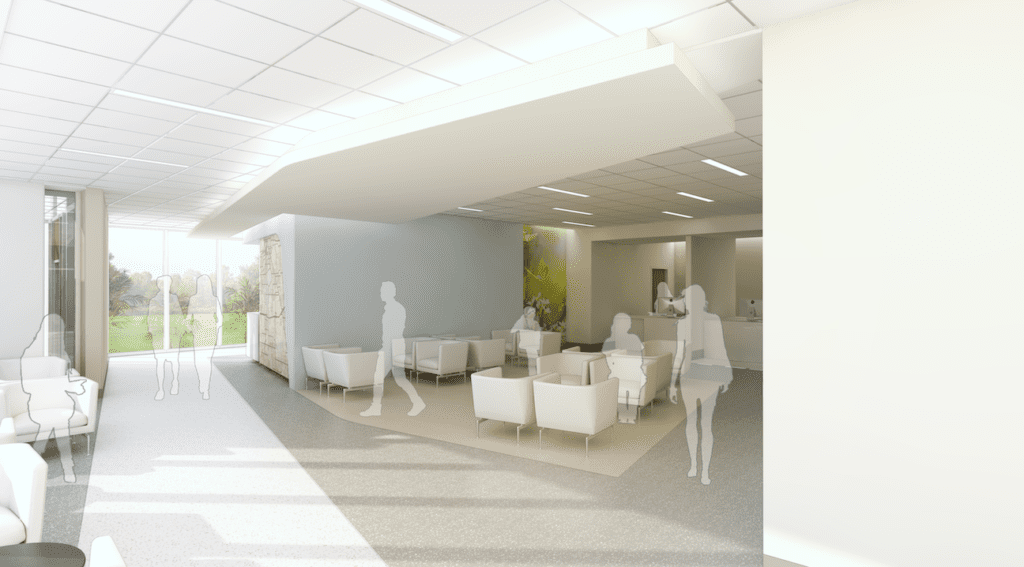Lakeland Regional’s Behavioral Health Center to Address Acute Need in Area
by TERESA SCHIFFER
Mental and behavioral health issues continue to be a major concern in the United States, and Central Florida is not immune to these problems. The unfortunate reality is that in Polk County, there is just one mental health provider for every 1,400 residents. Needless to say, area mental health services are often overwhelmed by the needs of the public. The good news is that the city of Lakeland and Lakeland Regional Health have recognized this crisis and implemented a plan to alleviate some of the burden. The Lakeland Planning and Zoning Board recently gave approval for Lakeland Regional Health to begin construction on a new Center for Behavioral Health and Wellness on the Medical Center Campus.
Lakeland Regional Health has been planning the new center for the past year after a community health needs assessment in 2017 indicated a lack of sufficient behavioral health services in Polk County. Construction on the free-standing, 96-bed acute psychiatric facility is expected to be complete in 2021. The Center for Behavioral Health and Wellness will provide services for adolescents and adults, allowing for expanded care and co-location of inpatient and behavioral health services to provide an enhanced continuum of care in an environment that is safe, welcoming, and accessible.
According to Alice Nuttall, director of Behavioral Health at Lakeland Regional Health, the hospital is currently licensed for 68 beds in its Behavioral Health Sciences department. When the hospital reaches capacity, they must transfer patients to other facilities. Additionally, there are insufficient resources available for geriatric and pediatric care. Children who are Baker Acted or seniors suffering with dementia may need to travel to Orlando or Tampa for care. This can present a significant challenge for families already in the midst of turmoil. The new Center for Behavioral Health and Wellness will increase Lakeland Regional Health’s inpatient capacity by 28. While the hospital does currently have an outpatient facility that serves the behavioral health needs of children and adults, the new center will help to decrease wait times for care.
One major benefit of the new center is that it will offer a range of services not currently available in the area, such as intensive outpatient care and partial hospitalization. These types of services will benefit individuals who need more help than just therapy and medication, but not quite so much as needing a hospital stay. Research shows that partial hospitalization often results in highly favorable outcomes. It is an approach that combines intensive behavioral health services with the comfort of remaining in the patient’s own home and routine. While at times it may be necessary for a patient to completely remove themselves from a situation to escape their stressors, in many cases true recovery happens at home.
“As far as the true work of getting better with your therapy,” Nuttall explains, “we can help get you stabilized and get the right plan in place, and it is crucial that the acute care in the hospital is done well to get you on the right path, but what really matters is the behaviors that you do every day.” This approach can be especially helpful for patients struggling with substance abuse problems who may need consistent support in the early stages of their recovery. Substance abuse issues have a direct correlation to many social problems, including crime rates, job performance, economic health, and more.
The building itself is designed around the needs of patients, families, and the community. It will make use of the therapeutic qualities of natural light and include indoor and outdoor spaces for activities. The goal for Lakeland Regional Health is for the Center for Behavioral Health and Wellness to become a hub from which patients transfer to various partners in the community to continue their care.
This new facility is expected to be a boon to Polk County, providing much needed mental health services to an underserved population. Those who have had first-hand experience with the Behavioral Health Sciences department at Lakeland Regional Health, such as Patti Wagner, are pleased with the development. Patti Wagner’s 78-year-old husband, Ed, was admitted to the hospital in March of this year after his dementia became psychotic.
“Lakeland Regional Health was the only hope I had for Ed,” Patti Wagner recalls. Ed Wagner had already been in two other hospitals in the preceding weeks before his wife was forced to Baker Act him. He was not responding to any medication. Upon their arrival at Lakeland Regional Health, Patti Wagner was immediately struck by the cleanliness of the facility and the care with which the nurses treated their charges. “It was a godsend,” she describes. “The people there were just so amazing, not only to Ed. They cared for Ed. I knew he was safe there. I knew he wasn’t going to wander off.”
Patti Wagner deeply appreciated that the staff in the Memory Disorders Unit not only looked after her husband’s medical well-being, but also strove to keep him comfortable. The doctors communicated with Patti Wagner regularly and were flexible with her regarding visiting hours because she had to drive from Ocala, after working all day, to see her husband of 42 years. The nurses facilitated telephone calls between the couple so Patti Wagner could hear her husband’s voice when she wasn’t with him.
Patti Wagner emphasizes that there is such a need for this type of care. “I know there are so many needs in this world, but there is a need for that.”
